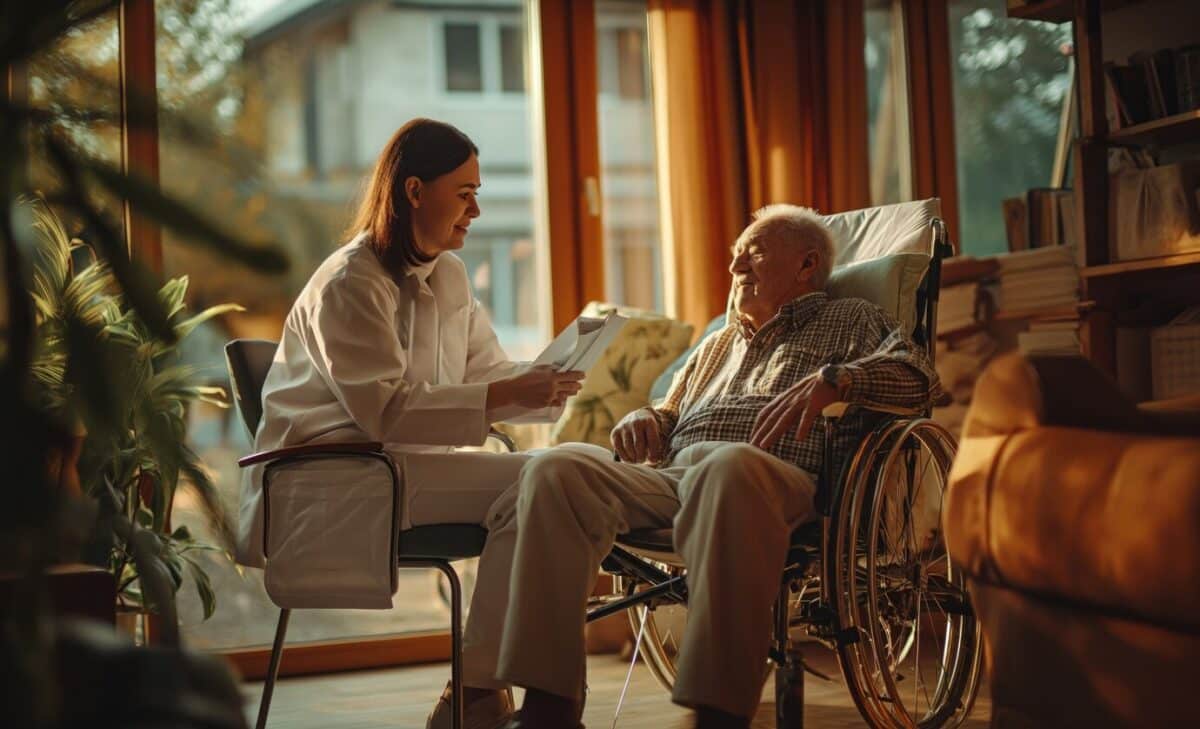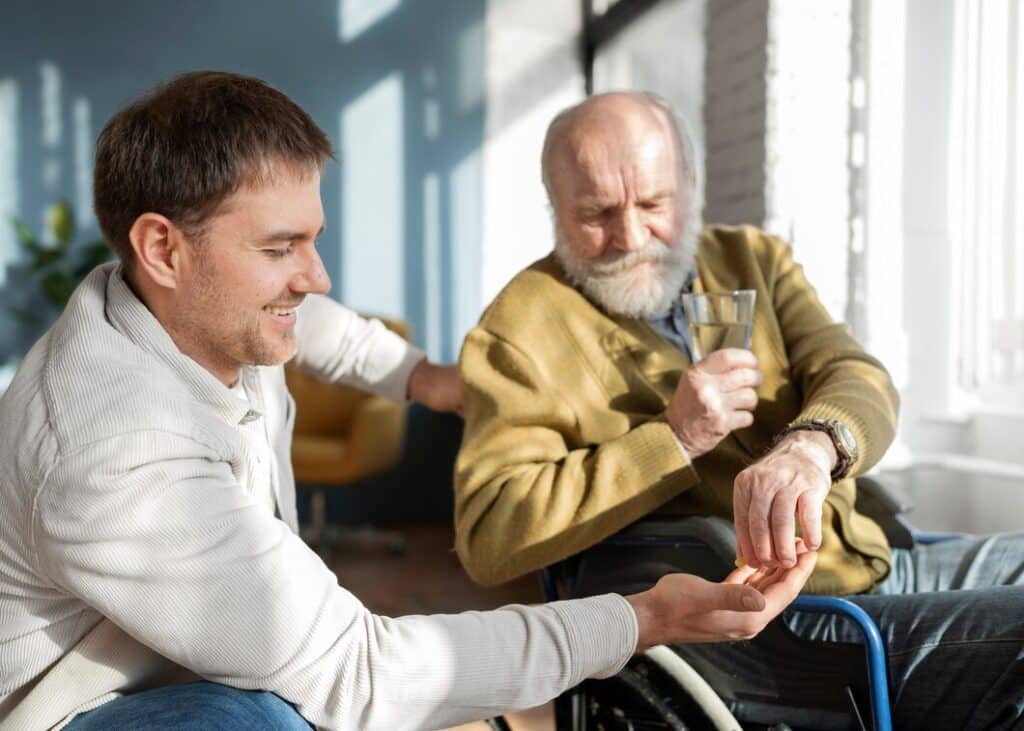The Ultimate Guide To Caring For Elderly Parents
You know that caring for elderly parents is a responsibility that many of us will face at some point in our lives. Whether they live with you, in their own home, or in an assisted living facility like Westmont of Morgan Hill, there are various ways you can ensure they receive the best care possible. In this comprehensive guide, we will investigate into the vital aspects of caring for elderly parents, from creating a safe home environment to understanding their healthcare needs. By following these tips and strategies, you can provide the utmost care and support for your aging loved ones. Let’s get started!
Assessing Your Parent’s Needs
Types of Care Requirements
Little is more critical than understanding the various care requirements your elderly parent may need. Whether it’s assistance with daily activities or specialized medical care, knowing what services are imperative is vital in providing the best support for your loved one. The table below categorizes common types of care requirements:
| Category | Description |
| Independent Living | Basic assistance with daily tasks |
| Assisted Living | Help with medication management and daily activities |
| Memory Care | Specialized care for individuals with dementia |
| Skilled Nursing | 24/7 medical care and rehabilitation services |
| Hospice Care | End-of-life care and support for the family |
Factors to Consider in Care Level Determination
Little factors must be considered when determining the appropriate level of care for your parent, including their medical condition, mobility, and cognitive abilities. This evaluation will help you make an informed decision about the type of care that best suits their needs. Factors to consider include:
- Medical condition and ongoing treatment plan
- Mobility and ability to perform daily tasks
- Cognitive abilities and potential memory concerns
- Social interaction and emotional well-being
- Financial considerations and insurance coverage
On assessing your parent’s needs, it’s crucial to gather input from healthcare professionals, family members, and your parent themselves. This collaborative approach ensures that all aspects of their well-being are considered when determining the most suitable care level. This holistic view enables you to create a personalized care plan that caters to your parent’s specific requirements and preferences.
Types of Care Requirements
Little is as vital as understanding the different care levels available for your parent. Depending on their condition and preferences, they may require anything from basic assistance with daily tasks to round-the-clock medical care. By familiarizing yourself with the various types of care available, you can make an informed decision that ensures your parent’s well-being is prioritized. Consult relevant resources and seek professional advice to determine the most suitable care option.
Tips for Effective Elderly Care
Even with the best intentions, caring for aging parents can be a complex and challenging endeavor. To ensure the well-being and safety of your loved ones, it is crucial to implement effective strategies and communication methods. By focusing on communication and creating a safe and comforting environment, you can provide the best care possible for your elderly parents. Recognizing signs of stress and burnout in yourself is crucial to maintaining a healthy caregiver dynamic.

Effective Elderly Care
Communication Strategies With Aging Parents
Effective communication is one of the most important aspects of caring for aging parents. Open and honest conversations can help address concerns, fears, and preferences. Active listening and understanding nonverbal cues are crucial for improving communication with elderly parents. Set aside dedicated time for heartfelt conversations and involve your loved ones in decisions about their care and well-being.
Creating a Safe and Comforting Environment
Strategies for creating a safe and comforting environment for your aging parents include removing hazards, installing grab bars and handrails, and ensuring proper lighting in the home. With the advancement of technology, you can also consider installing smart home devices and remote monitoring systems to enhance safety and provide peace of mind. Additionally, creating a comforting space with familiar belongings, comfortable furniture, and access to natural light can greatly improve the quality of life for your loved ones. Do not forget, providing care for aging parents is a significant responsibility, and it is crucial to approach this task with compassion, patience, and understanding. By implementing these strategies and tips, you can ensure a safe and supportive environment for your elderly loved ones.
Step-by-Step Guide to Organizing Elderly Care
| Identifying the Right Care Options | Navigating Financial and Legal Considerations |
GuideIn the context of identifying the right care options for your elderly parent, consider factors such as medical needs, location preferences, and budget constraints. Contact Westmont of Morgan Hill at 408-779-8490 to explore their comprehensive range of senior care services located in Morgan Hill, CA. |
IdentifyingNavigating financial and legal considerations can be overwhelming, but it is crucial for ensuring your parent’s care needs are met. Understand the costs involved in long-term care and consult with professionals to create a solid financial plan. Westmont of Morgan Hill in CA can also guide financial and legal aspects of elderly care. |
Choosing Care Providers and Services
Despite the wide array of options available for elderly care, selecting the right provider for your loved one can be overwhelming. Understanding the different types of care services and settings can help you make an informed decision that meets your family’s needs.

Care Providers and Services
Types of Elderly Care Services Available
Now, let’s investigate into the various types of elderly care services available. After assessing your loved one’s needs and preferences, you can explore options ranging from in-home care to assisted living facilities. Each service offers unique benefits and levels of support to accommodate different care requirements.
| In-Home Care | Nursing Homes |
| Assisted Living | Memory Care |
| Adult Day Care | Hospice Care |
Pros and Cons of Different Care Settings
Assuming you have narrowed down the options for care settings, weighing the pros and cons of each is essential. In-home care provides personalized attention but may lack round-the-clock supervision compared to nursing homes. Memory care facilities are specifically designed for dementia patients, while assisted living offers a balance of independence and support.
| Pros | Cons |
| Personalized Care | 24/7 Supervision |
| Comfort of Home | Isolation |
| Specialized Care | Costly |
To ensure that your elderly parent receives the best possible care, consider the unique advantages and challenges of each care setting. By evaluating the pros and cons, you can make an informed decision prioritizing your loved one’s well-being and comfort.
Balancing Your Life with Caregiving
Tips to Avoid Caregiver Burnout
To ensure your well-being as a caregiver, prioritizing self-care is crucial. Delegate tasks set boundaries, and take breaks to prevent burnout. Engage in stress-relieving activities, practice mindfulness, and seek support from friends and family. Bear in mind your health and happiness are crucial for effective caregiving.
- Delegate tasks to other family members or hire outside help when needed.
- Set boundaries with loved ones and healthcare providers to maintain your physical and emotional health.
- Take breaks and engage in self-care activities to recharge and avoid caregiver burnout.
Though caregiving is a demanding role, remember that taking care of yourself is not selfish. It enables you to provide better care for your loved one in the long run.

Caregiving to a Senior
Support Networks and Resources for Caregivers
Resources play a critical role in supporting caregivers. Organizations like Westmont of Morgan Hill in Morgan Hill, CA, provide valuable resources and support for caregivers. They offer services and programs tailored to caregiver needs, such as respite care, support groups, and educational workshops. Additionally, online platforms, local agencies, and community centers offer valuable resources and connections for caregivers navigating their caregiving journey.
To access these resources, reach out to your local senior care facilities, healthcare providers, and community organizations for support tailored to your needs as a caregiver. Connecting with others going through similar experiences can provide emotional support and valuable insights for effective caregiving strategies.
Your Advanced Care Planning
Understanding End-of-Life Care Options
Advanced Care Planning involves understanding the various end-of-life care options available to your loved one. Having open and honest discussions with your parent about their preferences and wishes for their end-of-life care is crucial for providing them with the best possible support and comfort during this difficult time.
Preparing for Future Health Changes
Advanced Care Planning also involves preparing for future health changes that your parent may experience. This includes discussing potential scenarios, such as a decline in health or the need for long-term care, and making decisions regarding their healthcare, financial, and legal matters to ensure their wishes are followed.
Future health changes can be unpredictable, but by having these essential conversations and making proactive decisions, you can help your parent navigate through any challenges that may arise with confidence and care.

Senior Care
Technology and Elder Care
Once again, in today’s digital age, technology is revolutionizing the way we care for our elderly loved ones. From smart home devices to wearable health monitors, there are a plethora of technological advancements aimed at improving the quality of life for seniors.
How Technology Can Aid in Elder Care
If utilized effectively, technology can provide valuable support for elderly care. Wearable devices can monitor vital signs and activity levels, while smart home technology can help with medication reminders and fall detection.
Evaluating Pros and Cons of Elderly Care Technology
Technology can be both a blessing and a curse for elderly care. Evaluating the pros and cons is crucial in determining the most effective solutions for your loved ones. Below are some key considerations:
| Pros | Cons |
| Increased safety and security | Potential privacy concerns |
| Improved communication and connectivity | Learning curve for seniors |
| Access to telemedicine services | Reliance on technology |
Conclusion
The Ultimate Guide To Caring For Elderly Parents provides comprehensive insights and tips on caring for aging loved ones effectively. By addressing physical, emotional, and practical needs, this guide is a valuable resource for families navigating the challenges of eldercare. Remember that every situation is unique, but with the right knowledge and support, you can ensure a comfortable and fulfilling life for your elderly parents. Don’t hesitate to contact professionals like Westmont of Morgan Hill in Morgan Hill, CA, at 408-779-8490 for additional assistance and guidance on senior care options.
FAQ – The Ultimate Guide To Caring For Elderly Parents
Q: What are some key considerations when caring for elderly parents?
A: When caring for elderly parents, it is crucial to consider their physical, emotional, and mental needs. Ensure their living environment is safe and comfortable, assist with daily tasks if needed, and actively listen to their concerns and feelings.
Q: How can I ensure my elderly parents receive proper medical care?
A: To ensure your elderly parents receive proper medical care, schedule regular check-ups with their healthcare providers, keep track of their medications and follow-up appointments, and communicate effectively with their doctors about any health concerns or changes in their condition.
Q: What are some ways to support elderly parents with their emotional well-being?
A: Supporting elderly parents with their emotional well-being involves spending quality time with them, encouraging social interactions and activities, validating their feelings and experiences, and seeking professional help if they show signs of depression or anxiety.






















